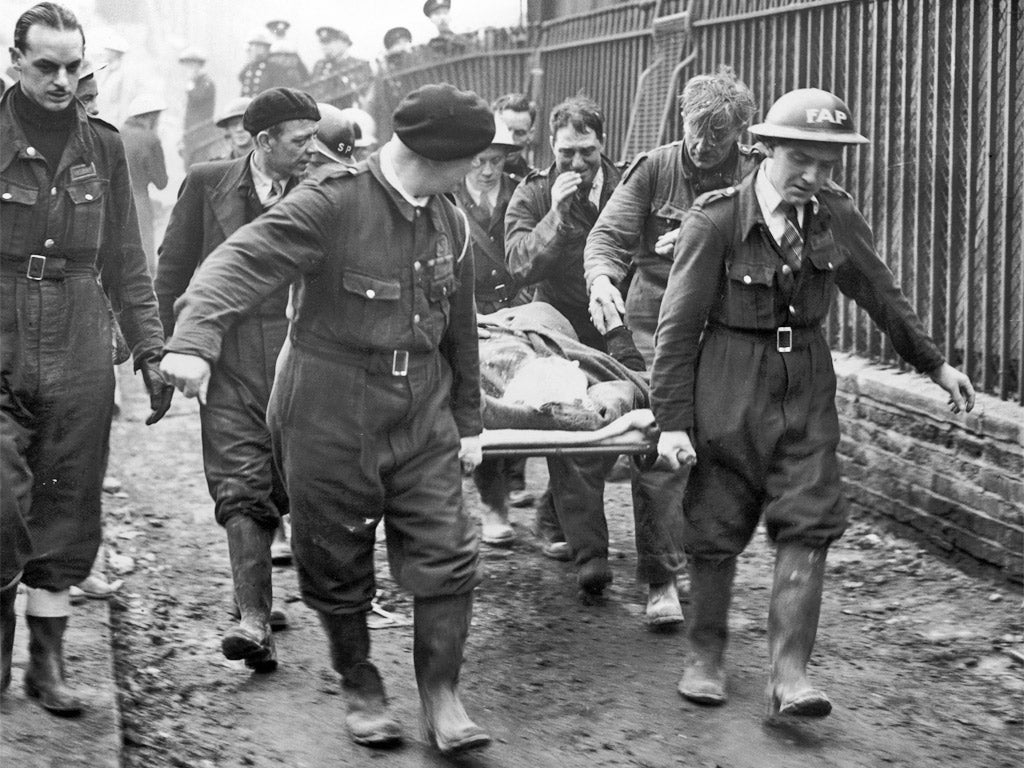The Week In Radio: How the cry-baby British lost their Blitz spirit

Your support helps us to tell the story
From reproductive rights to climate change to Big Tech, The Independent is on the ground when the story is developing. Whether it's investigating the financials of Elon Musk's pro-Trump PAC or producing our latest documentary, 'The A Word', which shines a light on the American women fighting for reproductive rights, we know how important it is to parse out the facts from the messaging.
At such a critical moment in US history, we need reporters on the ground. Your donation allows us to keep sending journalists to speak to both sides of the story.
The Independent is trusted by Americans across the entire political spectrum. And unlike many other quality news outlets, we choose not to lock Americans out of our reporting and analysis with paywalls. We believe quality journalism should be available to everyone, paid for by those who can afford it.
Your support makes all the difference.Whatever happened to stoicism? At what point did we Brits give up on the chilliness enforced by centuries of corporal punishment and parental indifference and yield to the impulse to get everything out in the open? When exactly did we turn into a nation of cry babies boo-hooing to our therapists about how our parents never showed us affection and are thus responsible for everything that went wrong thereafter?
There was a moment at the beginning of Radio 4's terrific documentary A History of the Stiff Upper Lip when I briefly found myself looking with fondness on the days when we knew how to cope with catastrophe, which was to dust oneself down, reapply one's lipstick and act as if nothing had happened. But then I remembered having broken my arm as a child and not being taken to hospital for nearly a week on the basis that it was "just a bruise" and I started to wonder if, 30 years later, it was too late to sue my parents.
Anyway, what could have been a Cosmo-style investigation into a nation's self-absorption was in fact an eye-opening lesson in identity, masculinity, collective psychology and social divisions going back centuries. Presenter Louisa Foxe had assembled a heavyweight bevy of writers and historians, among them Simon Schama, Peter Hitchens and Ken Loach, to investigate the origins of our nation's once-proud reserve.
We heard about those bastions of British fortitude Baden-Powell, Churchill, Kipling and Captain Scott, the latter who refused to take the opium tablets in his pocket at the brink of death lest he be seen by subsequent generations as a big sissy. One contributor recalled a story about Lawrence of Arabia slowly snuffing out a candle with his fingers and being asked how he did it. "The trick is not minding that is hurts," the silly berk replied.
In the 19th and 20th centuries, stoicism and forbearance was the preserve of those educated at public school where things like rugby, cold baths and regular exposure to the cane were viewed as character-building. The lower classes, on the other hand, were clearly not trained in rational thought, their emotive tendencies demonstrated in such self-indulgent skirmishes as the Luddite riots, the Chartist uprising and the Peterloo massacre.
But even upper-class lips started wobbling after the First World War when death was no longer seen as noble but a pitiful waste. And when Britain was bombed in the Second World War, explained Foxe, it wasn't misplaced repression that led to the fabled "Blitz spirit" but a coping mechanism at the terrifying death and destruction in which those on the home front were condemned to live, a theory illustrated by startlingly grim archive recordings of in which civilians recalled retrieving body parts from bombed buildings in an effort to identify the dead.
If, from the end of the war onwards, Britain seems to have been coasting inexorably towards the nation of wet blankets that we are today – a process accelerated by the demise of a certain princess that prompted people who had never met her to give the performance of their lives on the Six O'Clock News – then, Foxe maintained, this isn't necessarily a bad thing.
Nostalgia can be dangerous, particularly when it harks back to a time before the welfare state when the British upper classes ruled the world and the plebs knew their place. So it appears there's no sense in suffering in silence after all. Snivelling in therapists' offices about the injustices visited upon us from birth isn't merely indulgence, it's now our social duty. Rule Britannia!
Join our commenting forum
Join thought-provoking conversations, follow other Independent readers and see their replies
Comments